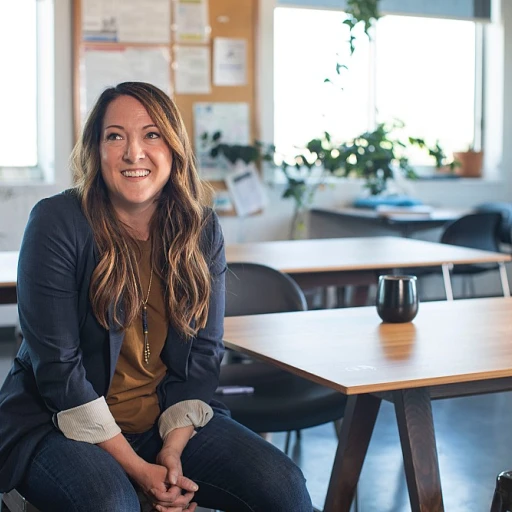Introduction to PCA Job Duties
Understanding the Core Responsibilities of Personal Care Assistants
Personal Care Assistants (PCAs) play a crucial role in the healthcare sector, providing essential services to clients requiring assistance with daily living activities. These healthcare professionals are involved in the direct care of clients, ensuring their personal hygiene, mobility, and overall well-being are maintained.
PCAs often engage in tasks such as bathing, dressing, and managing the personal care needs of clients. Their role is invaluable in supporting patients' quality of life, as they help with medication management, meal preparation, and even some housekeeping duties. Such responsibilities highlight the central role of PCAs in the continuum of patient care.
The job requires specific skills and knowledge, often gained through job training or by obtaining a high school diploma or equivalent to meet the typical entry-level requirements. Some may pursue advanced training to gain a competitive edge in the job market and provide superior patient care services.
Given the varied nature of their tasks, work environments for PCAs may differ significantly, ranging from residential homes to healthcare facilities. Understanding the demands of this role is crucial for beginners and those interested in pursuing this fulfilling "job description" within the healthcare industry.
An encompassing appreciation of their responsibilities can significantly aid in balancing the demands of caregiving with personal commitments. For those looking to delve deeper into navigating innovative approaches to work-life harmony for PCAs and similar roles, exploring innovative approaches to work-life harmony can be beneficial.
Balancing Caregiving and Personal Life
Finding Harmony Between Professional and Personal Duties
Balancing caregiving tasks with personal life can often seem like juggling multiple roles at once. For Personal Care Assistants (PCAs), the line between professional responsibilities and personal commitments can blur, primarily due to the unpredictable nature of patient care. It is essential to establish distinct boundaries and practice effective time management to maintain a healthy balance.
Being a care assistant involves a variety of tasks, from helping with daily living activities to providing specialized patient care, which can include personal hygiene and health management. While these responsibilities are crucial, it is equally important for PCAs to ensure they are not overwhelmed, compromising their own health and personal life. Navigating employment in this field demands strategic approaches to time allocation and personal care.
The work environment and job outlook for PCAs may vary based on the healthcare setting and patient needs. Therefore, the ability to adapt and remain flexible is crucial for success in balancing both work and life demands. Care aides can benefit from setting realistic job duties and personal expectations. Being aware of one's limitations and not hesitating to seek assistance or delegate tasks when necessary can make a significant difference.
An effective strategy for maintaining balance involves scheduling. PCAs who organize their work around clear, structured routines can optimize their time both at work and at home. Critical skills such as prioritization and efficient task management become invaluable tools in this context. This approach not only enhances productivity but also allows for valuable personal time to relax and recharge.
Time Management Strategies for PCAs
Effective Strategies for Managing Your Time
For Personal Care Assistants (PCAs), managing time effectively is crucial in providing high-quality patient care while maintaining a fulfilling personal life. Understanding job duties and responsibilities that include assisting clients with daily living activities, such as personal hygiene and mobility, can often be demanding. To navigate this work environment, PCAs can integrate several time management strategies into their routines:- Prioritize Tasks: Identifying and focusing on the most critical tasks first is essential. This ensures patient care needs are met efficiently, which is particularly vital in healthcare settings where delays can negatively impact both the caregiver and client.
- Create a Flexible Schedule: While a PCA's schedule can be influenced by clients' needs, creating a flexible work plan allows adjustments when unexpected changes occur. This adaptability is key in balancing work commitments with personal obligations.
- Optimize Downtime: During less busy periods, care assistants should utilize time for training or self-care activities, which enhance skills and well-being. Engaging in brief exercises or relaxation techniques can rejuvenate focus and energy.
- Set Boundaries: Clearly defining work limits can prevent burnout and help assistants maintain a healthy boundary between professional and personal domains. Effective communication with patients about availability contributes significantly to this.
- Leverage Technology: Utilizing digital tools and healthcare apps assists in organizing tasks and appointment scheduling, ultimately reducing manual workload and enhancing efficiency.
Emotional Resilience in Caregiving
Building Emotional Resilience in the Role of a Care Assistant
Working as a Personal Care Assistant (PCA) can be an incredibly rewarding profession, offering the chance to make a tangible difference in the lives of patients. However, it can also be emotionally demanding. Responding to the constant needs of clients day in and day out requires building emotional resilience. Developing emotional resilience is a critical skill for anyone providing healthcare services. It starts by recognizing that the ability to provide compassionate personal care while maintaining one's own emotional health is essential to longevity in this demanding profession.- Acknowledge Emotional Strain: It’s okay to admit that the role of a PCA can be challenging. Acknowledging this allows care assistants to seek out strategies and support systems, like those we've covered earlier.
- Regular Reflection and Self-Assessment: Regular reflection helps care aides understand their emotional triggers. Assessing how your day went, what went well, or what might need improvement is a constructive way to build resilience.
- Prepare for Emotional Interviews: In job interviews, when asked about handling stress, highlight your strategies for managing patient care challenges. Potential employers will appreciate candidates who are aware of their emotional health needs.
Setting Boundaries in Caregiving Roles
Establishing Firm Boundaries for Effective Care
Being a personal care assistant (PCA) involves fulfilling a variety of job duties, primarily aimed at providing comprehensive care to clients and patients. However, the constantly evolving work environment can make it challenging to strike a balance between job responsibilities and personal life. One critical aspect of maintaining this work-life balance as a care aide is setting clear and firm boundaries.
Boundaries are crucial in any employment role but are particularly essential in caregiving, where emotional investment can blur the lines between professional and personal involvement. PCAs often provide intimate personal care such as assisting with personal hygiene and daily living activities, which requires them to establish boundaries to protect both themselves and their patients.
Here are some strategies for PCAs looking to set effective boundaries:
- Clearly Define Job Responsibilities: Have a strong understanding of your job description through job training and communication with patients, to prevent taking on tasks outside your role.
- Allocate Time for Personal Commitments: Ensure you schedule time for personal interests and health-related activities, solidifying the separation between work and personal life.
- Communicate Effectively: Maintain open channels with clients about your availability and what services you can provide, preventing unrealistic expectations.
- Seek Support and Training: Regular training updates and support from peer networks can help you understand the boundaries better and manage job-related stress.
Establishing these boundaries not only protects your mental and emotional health but also enhances the quality of care you provide. By prioritizing your well-being, you ensure that you can effectively meet your responsibilities without experiencing burnout, fostering a sustainable career in the healthcare industry.
Support Systems for PCAs
Building a Supportive Network
A strong support system is crucial for Personal Care Assistants (PCAs) who often juggle demanding caregiving roles with personal responsibilities. Establishing and nurturing this network can significantly influence a PCA’s emotional and physical well-being, job satisfaction, and ability to maintain work-life balance.- Colleagues and Peers: Engaging with fellow care assistants can offer a sense of camaraderie and shared understanding that is incredibly valuable. Sharing experiences and negotiating the challenges of providing personal care can make the work environment more supportive.
- Family and Friends: Leaning on family and friends for emotional support and understanding can create a healthy buffer against work stress. Their support can manifest in simple ways, such as providing a listening ear after a long day with clients.
- Professional Development Groups: Joining groups or forums dedicated to PCAs or the broader healthcare community can enhance skills and provide updates on job training and employment practices. These platforms can be a resource for interview questions, discussing work-related issues, and exploring job descriptions across various settings.
- Supervisors and Management: Open communication with supervisors about job duties and any challenges faced can lead to effectively addressing workload concerns and creating an encouraging work environment. Discussing concerns with management can also help in negotiating time for personal health and potentially adjusting daily living schedules to better suit personal needs.
- Mental Health Resources: Utilizing mental health services, such as a therapist or counselor, can provide tailored support, helping care aides manage stress and maintain emotional resilience. Accessing resources through a nurse practitioner or through healthcare networks specifically for healthcare workers, including PCAs, can be beneficial.








